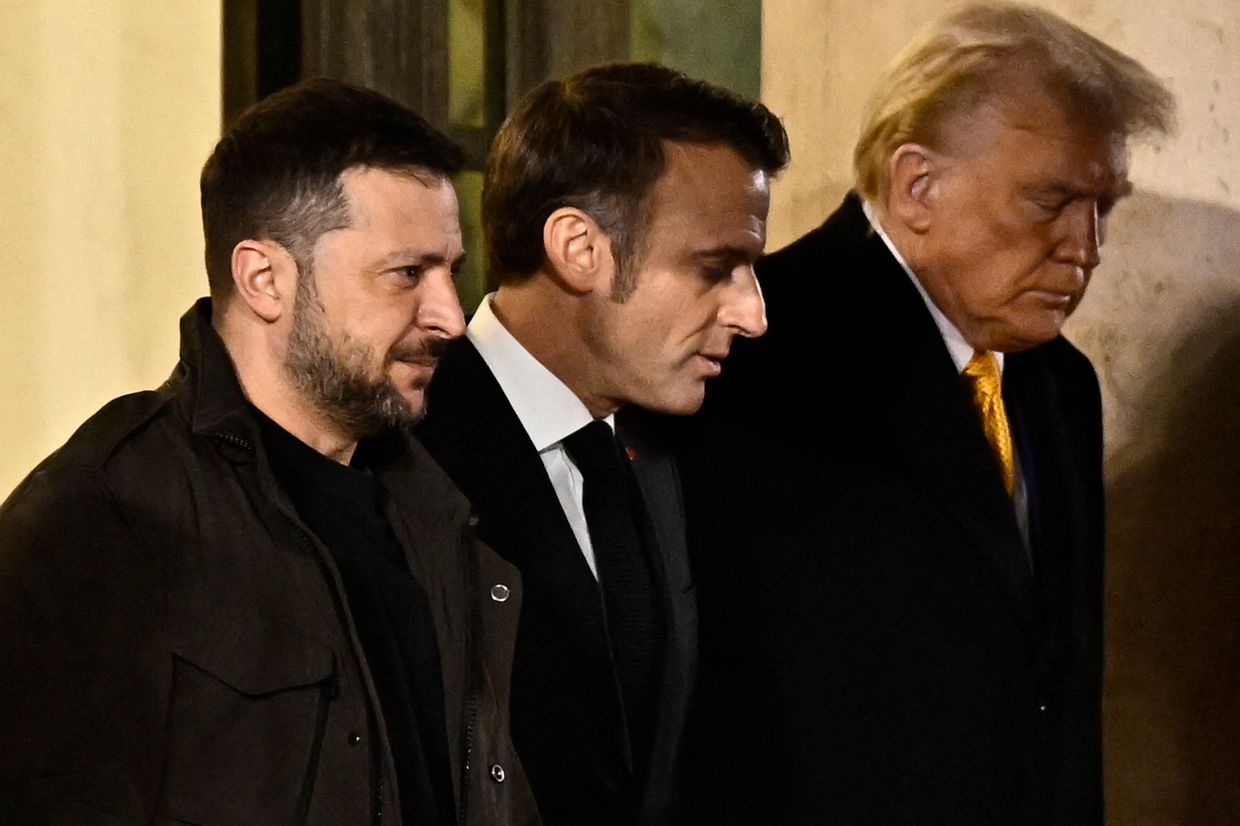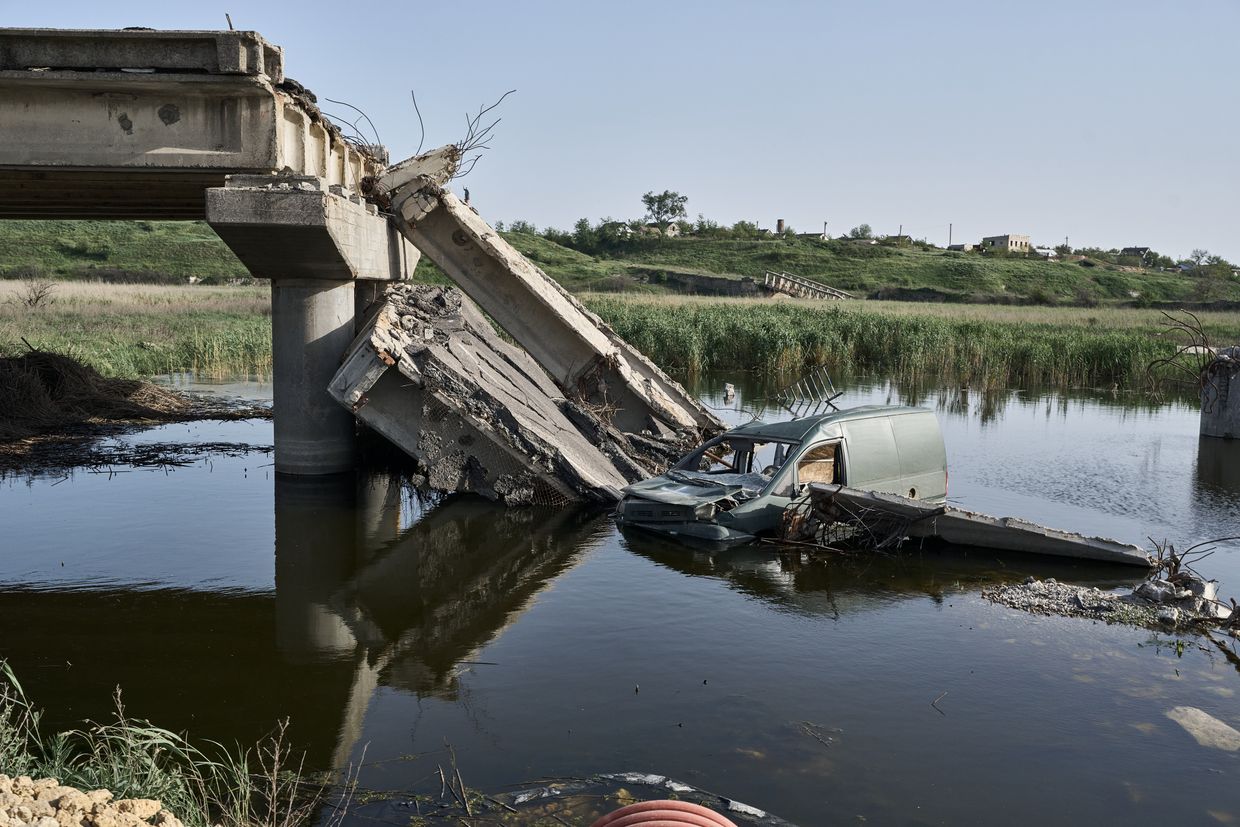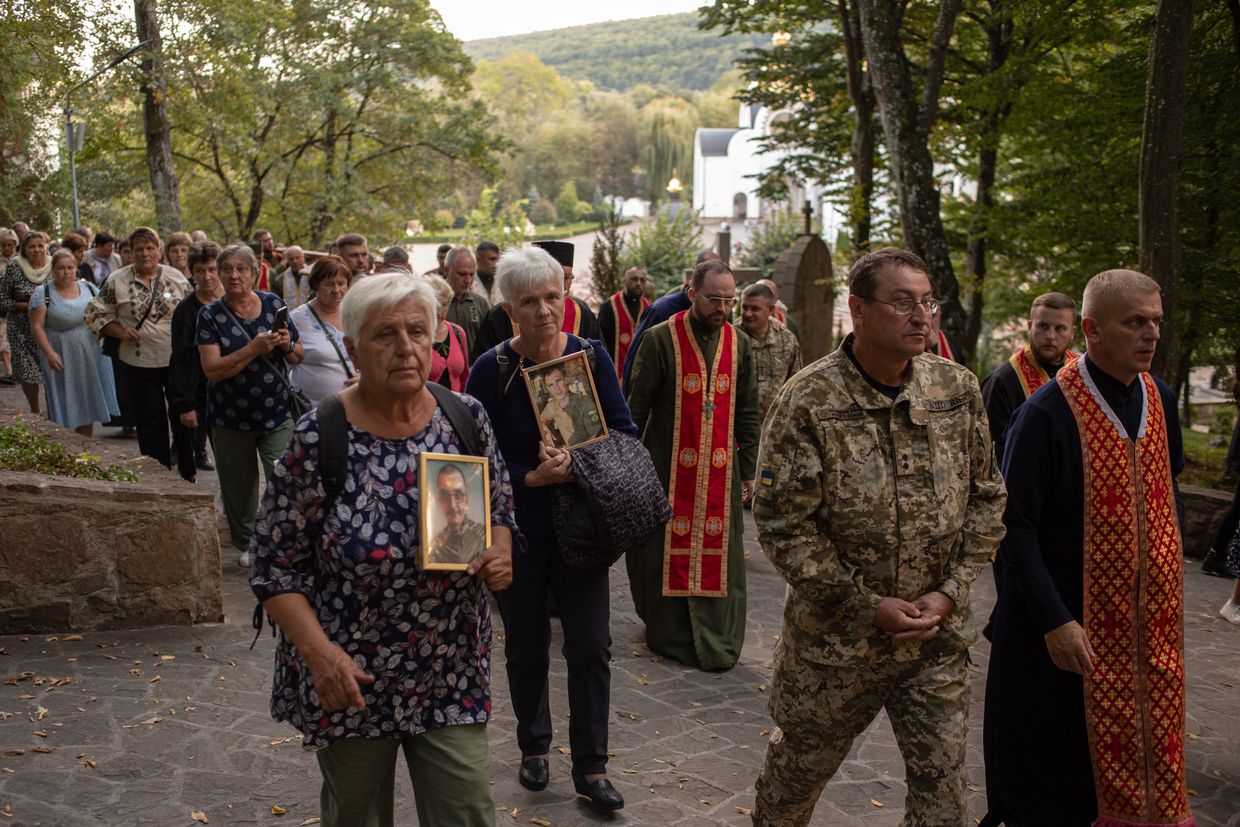Ukraine war latest: Russia launches one of the largest aerial attacks on Ukraine's energy grid

Key developments on Dec. 13:
- Russia launches one of the largest aerial attacks on Ukraine's energy grid
- Ukraine resisting Russian encirclement attempts at 4 Donetsk Oblast villages, military says
- Ukraine's new Ground Forces chief announces reforms focused on personnel, tech
- Russia mulls attacking Ukraine with Oreshnik nuclear-capable missile this weekend, FT reports
Russia launched a large-scale aerial attack against Ukraine's energy infrastructure early on Dec. 13, firing around 290 missiles and drones across multiple regions.
"The enemy continues its terror. Once again, the energy sector across Ukraine is under massive attack," Energy Minister Herman Halushchenko said.
Air defense is active in Kyiv Oblast, the regional administration said. Explosions were also reported in the Odesa, Vinnytsia, Lviv, Ivano-Frankivsk, and Cherkasy oblasts. Russian forces deployed cruise missiles, ballistic missiles, and the Kinzhal air-launched ballistic missiles, the Air Force reported.
Russia launched at least 93 missiles, including those supplied by North Korea, President Volodymyr Zelensky said. Eighty-one were shot down, including 11 intercepted by Ukraine's F-16 fighter jets.
Moscow's forces also deployed close to 200 drones, making it "one of the largest strikes on our energy grid," Zelensky said.
"As a result of the mass missile-drone attack, energy facilities in multiple regions were damaged," the state energy operator Ukrenergo said. Repair works are underway, but the scope of emergency shutdowns will increase, according to the statement.
Ivano-Frankivsk Oblast suffered the "most massive attack during the full-scale war," Governor Svitlana Onyshchuk announced. Cruise missiles and drones struck critical infrastructure facilities in the region, but no casualties were reported at the moment.
Six energy facilities were targeted in Lviv Oblast, according to regional authorities. Neighboring Ternopil Oblast was also impacted, the regional military administration said without revealing details.
"There are no casualties. Critical infrastructure facilities are operating normally," the Ternopil Oblast authorities said on Telegram. Earlier in the morning, officials said that half of the region's residents were without power due to emergency shutdowns.
Two people – employees of a civilian enterprise – were injured in the village of Myrne in Kharkiv Oblast, Governor Oleh Syniehubov reported initially. The number of injuries later rose to four.
Five of Ukraine's nine operational nuclear reactor units have reduced power output due to the attack, the International Atomic Energy Agency (IAEA) said.
The Polish Air Force scrambled its fighter jets as Russian drones and missiles entered western Ukraine, a usual precaution Warsaw takes during Russian mass strikes.
"This is (Russian President Vladimir) Putin’s 'peace' plan – destroying everything. This is how he wants to negotiate, by terrorizing millions of people," Zelensky said.
"Oil gives Putin enough money to believe in impunity. A strong reaction from the world is needed: a massive strike – a massive reaction."
Ukraine resisting Russian encirclement attempts at 4 Donetsk Oblast villages, military says
Ukrainian forces are repelling Russian assaults near Uspenivka, Hannivka, Trudove, and Romanivka in Donetsk Oblast and "are taking necessary measures" to prevent encirclement, the Khortytsia group of forces reported on Dec. 13.
The statement comes as analysts raise concerns about a growing risk of Ukrainian units being encircled in the area.
The DeepState monitoring group reported on Dec. 12 that Russian forces are intensifying their assault on Uspenivka, 43 kilometers (26 miles) from occupied Donetsk. Russia has reportedly gained control of key routes between Uspenivka and Hannivka, threatening to cut off Ukrainian units in what has been dubbed the Uspenivka pocket.
The sector lies roughly 40 kilometers (25 miles) south of the front-line town of Pokrovsk and 15 kilometers (9 miles) north of occupied Vuhledar.
The Khortytsia group cautioned against "emotional interpretations" of the battlefield situation, saying that such reactions could complicate the situation and benefit Russian forces.
According to the official statement, the Ukrainian military repelled Russian assaults on the outskirts of settlements.
Commander-in-Chief Oleksandr Syrskyi has previously described the ongoing Russian offensive as “one of the most powerful” since the full-scale invasion began.
Throughout the autumn, Russian forces have made operational gains in southern Donetsk Oblast, particularly near Toretsk, Chasiv Yar, and Kupiansk, while advancing on Russian soil in Kursk Oblast.
Ukraine's new Ground Forces chief announces reforms focused on personnel, tech
The newly appointed commander of Ukraine's Ground Forces, General Mykhailo Drapatyi, unveiled plans for fundamental reforms in the branch on Dec. 12, aiming to enhance its effectiveness on the battlefield.
The proposed changes include a revamped recruitment system with "zero tolerance for corruption," improved military training tailored to front-line needs, and integration of advanced technology into training and operational processes.
The announcement comes amid reports of personnel shortages in Ukraine's military. Mobilizationefforts have slowed in recent months, leaving front-line units undermanned.
Drapatyi emphasized that the Ground Forces should become an "elite" military unit, focusing on personnel, technology, and transparent management.
The commander highlighted the importance of reforming training curricula and centers to better prepare soldiers for modern warfare. Social support for service members will also be prioritized under Drapatyi’s leadership.
The Associated Press reported on Nov. 27 that the U.S. has urged Ukraine to lower its draft age to address these shortages.
U.S. State Department spokesperson Matthew Miller reiterated on Dec. 9 that Washington is prepared to provide additional training and weapons if Kyiv implements this measure.
Drapatyi has a distinguished record, including commanding the 58th Separate Motorized Infantry Brigade and playing a critical role in the liberation of Mariupol in 2014.
President Volodymyr Zelensky, who appointed Drapatyi on Nov. 29, stressed that internal changes in the military are vital to achieving Ukraine’s strategic objectives.
Russia mulls attacking Ukraine with Oreshnik nuclear-capable missile this weekend, FT reports
Russia is considering launching an Oreshnik nuclear-capable intermediate-range ballistic missile (IRBM) once again at Ukraine this weekend, the Financial Times (FT) reported on Dec. 13, citing an unnamed representative of the U.S. National Security Council.
Russia launched an Oreshnik missile without a nuclear warhead at the city of Dnipro in Ukraine on Nov. 21. Russian President Vladimir Putin claimed the strike was in response to Ukraine's use of U.S. and British long-range missiles to attack Russian territory.
The unnamed official said that Russia wanted to use the weapon to intimidate Ukraine and its supporters, but the Oreshnik "does not change the rules of the game on the battlefield."
"As (Vladimir) Putin has said publicly, Russia intends to launch another experimental Oreshnik missile at Ukraine, and it is possible that Russia could do so in the coming days," the source told FT.
The Oreshnik is likely not a new Russian development but a modification of the RS-26 missile, also known as the Rubezh, Fabian Hoffmann, a defense expert and doctoral research fellow at the University of Oslo, told the Kyiv Independent.
"I think basically they (Russians) just took apart the RS-26 or just cannibalized it and then put together this new missile with a couple of upgrades and a new paint job."
First produced in 2011, and successfully tested in 2012, the Rubezh is a 36,000 kilogram, nuclear-capable, intermediate-range ballistic missile with a known range of 5,800 kilometers.
















